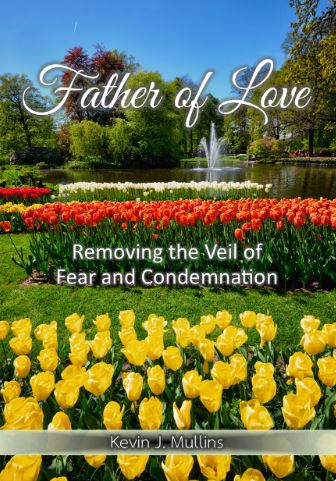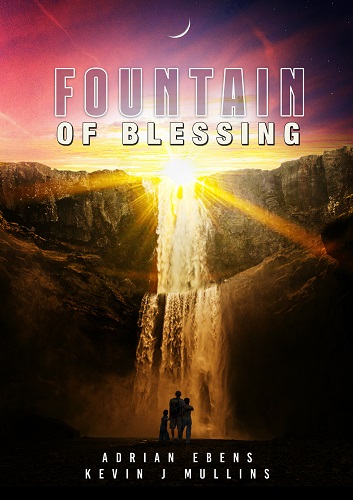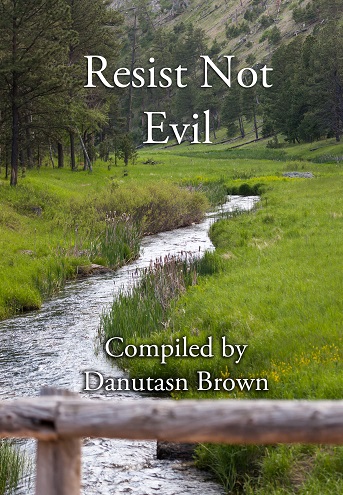Passover means Protecting, not Deciding not to Kill
What does the word Passover (in Hebrew pesach-noun pasach-verb) mean? It was inspired by this video, though I think that the video misses a crucial Bible verse and the host and guest are afraid to totally commit to the implication of what they are saying. (30min vid, watching it isn't necessary to understand this article)
When we think of the last plague of Egypt, we think of this verse:
For I will pass through the land of Egypt this night, and will smite all the firstborn in the land of Egypt, both man and beast; and against all the gods of Egypt I will execute judgment: I am the Lord. And the blood shall be to you for a token upon the houses where ye are: and when I see the blood, I will pass over you, and the plague shall not be upon you to destroy you, when I smite the land of Egypt. (Exodus 12:12-13)
We think God was going to go from house to house, killing the firstborn – man and animal – if they didn’t have the blood of the lamb painted on the doorposts. If the house did have the blood covering it, God would "pass over" the house, skipping it, and not killing those inside.
As much as we, Character of God believers, show verse 23 – God “will not suffer [allow] the destroyer to come in unto your houses to smite you” - and talk about the Destroyer being Satan, the nature of the word Passover makes it incredibly difficult to shift how we see this event, because Passover immediately brings us back to the image of God skipping over the house and not killing.
But how did we get the word pass over, and is it a correct a translation? Modern Jewish Hebrew scholars are suggesting it isn’t, and strangely enough, the Septuagint [partly] agrees.
I will go throughout the land of Egypt in that night, and will smite every first-born in the land of Egypt both man and beast, and on all the gods of Egypt will I execute vengeance: I am the Lord. And the blood shall be for a sign to you on the houses in which ye are, and I will see the blood, and will protect ["pass over" in KJV] you, and there shall not be on you the plague of destruction, when I smite in the land of Egypt. (Exodus 12:12-13)
So the word the translators of the Septuagint translated pasach (the Hebrew word which we have translated to "pass over") in Greek to protect, and that is why we see protect or shelter in English. Is there a reason why the KJV translators didn’t follow the Septuagint translators with protect, instead making it pass over? Besides tradition, I believe it was because they didn’t think v.12 made sense if v.13 said protect, because it says God “will smite every firstborn”, so how can God smite and protect?
But we know that ancient Hebrew often uses active verbs to express what God permits and allows. Thus He can smite by allowing Satan the destroyer, and if we put blood on our doors we allow God to protect us from the destroyer. (see this article: https://characterofgod.org/i-create-evil/)
“When God is said to harden men’s hearts,-to deliver them up to a reprobate mind,-to send them strong delusions, that they should believe a lie, and the like;- it is infinitely far from being meant of an efficacious impulse in God Almighty. That all those verbs,- to harden, to blind, to deliver up, to send delusions, to deceive, and the like,-are by an ordinary Hebraism only permissive in signification, though active in sound, is placed without all controversy.” (Thomas Pierce, I, p23-24 edition of 1658 as quoted in Jackson, The Providence of God, p401)
Reading the Septuagint doesn’t necessarily solve the problem, for in v. 23 it translates pasach not as protect/shelter like it did in v. 12, but pass over. The issue is not of language, but of understanding. Why didn’t God clearly state it? If it was Him, why mention a destroyer; if it wasn’t Him, why not just say I’m protecting you from Satan?
It is an interesting question, and I believe it goes to the deeper question of why God speaks so little about Satan in the Old Testament, and then all of a sudden a lot in the Gospels of Jesus. God knew human pagan nature was so prone to worshipping fickle gods out of fear rather than out of a consistent spirit of love that if He explained clearly that Satan “has the power of death” (Hebrews 2:14), it would cause the Israelites to worship BOTH God and Satan. God wanted them to focus on Him, and it would not be until He could more fully contrast His character and Satan’s through the life of His Son on earth that He would explain more about the workings of Satan.
But let us do a word study of the verb pasach, or pass over, and see what the the word means in other verses where it is used.
Besides being used three times in Exodus 12, it is used four more times in the Old Testament. (This is the verb form of the word - H6452, not the noun form which is Passover - H654, which is pesach not pasach)
And Jonathan, Saul's son, had a son that was lame of his feet. He was five years old when the tidings came of Saul and Jonathan out of Jezreel, and his nurse took him up, and fled: and it came to pass, as she made haste to flee, that he fell, and became lame [pasach]. And his name was Mephibosheth. (2 Samuel 4:4)
Here we see that pasach as sheltering, protecting, standing guard, means lame, implying staying in one place, not moving much.
And Elijah came unto all the people, and said, “How long halt [pasach] ye between two opinions? if the Lord be God, follow him: but if Baal, then follow him.” And the people answered him not a word. (1 Kings 18:21)
Here the people of Israel are stuck, rooted in place, between two opinions: to follow God or to follow Baal.
And they took the bullock which was given them, and they dressed it, and called on the name of Baal from morning even until noon, saying, “O Baal, hear us.” But there was no voice, nor any that answered. And they leaped [pasach] upon the altar which was made. (1 Kings 18:26)
Here the prophets of Baal leaped continually in one spot, the altar to Baal, calling on Baal to respond to their sacrifice. This seems a little different, but it is similar in the sense that it is occurring in one place. They didn't move away from the altar to go elsewhere; they were moving around agitatedly (lamely?) at that one spot.
There is one more verse that uses the word pasach, and it is the interesting verse of those outside Exodus 12 and, strangely enough, it wasn’t mentioned by the Hebrew scholar in the video. It is this:
As birds flying, so will the Lord of hosts defend Jerusalem; defending also he will deliver it; and passing over [pasach] he will preserve it. (Isaiah 31:5)
“Passing over he [God] will preserve it”? Here we see that the translation doesn’t make sense. In the Breton’s Septuagint translation it says this:
As birds flying, so shall the Lord of hosts defend; he shall defend Jerusalem, and he shall rescue, and save and deliver. (Brenton’s Septuagint Isaiah 31:5)
Here we see that rather than passing over, a translation of protect, shelter, stand guard, and standing over would be much better. God is not passing over to not destroy Israel, He is promising to protect Israel as a bird protects its chicks.
When we think of birds flying to protect their young, we think of the terribly sad words of Jesus who wanted to save and protect Israel, but they wouldn’t let Him.
O Jerusalem, Jerusalem, thou that killest the prophets, and stonest them which are sent unto thee, how often would I have gathered thy children together, even as a hen gathereth her chickens under her wings, and ye would not! (Matthew 23:37)
They would not cover themselves with His character to protect themselves from the Destroyer, instead choosing Caesar over Jesus (like the ancient Egyptians followed after Pharoah rather than God), and inevitably perished.
It was this lesson that God was trying to teach humanity in the Passover. And how much more powerful would it have been if the word had been translated just a little differently! Let us reimagine some of these verses in Exodus 12:
And thus shall ye eat it; with your loins girded, your shoes on your feet, and your staff in your hand; and ye shall eat it in haste: it is the LORD’s safeguard. (Exodus 12:11)
And the blood shall be to you for a token upon the houses where ye are: and when I see the blood, I will guard over you, and the plague shall not be upon you to destroy you, when I smite the land of Egypt. (Exodus 12:13)
For the LORD will pass through to smite the Egyptians, and when He seeth the blood upon the lintel, and on the two side posts, the LORD will guard over the door, and will not suffer the destroyer to come in unto your houses to smite you. (Exodus 12:23)
And it shall come to pass, when your children say unto you, “What mean ye by this service?”
That ye shall say, “It is the sacrifice of the LORD’s safeguard, who guarded over the houses of the children of Israel in Egypt, when He smote the Egyptians, and delivered our houses. And the people bowed the head and worshipped. (Exodus 12:26-27)
LORD may we realize what it is you are really trying to do for us! Let us keep the Passover (or the Safeguard of the LORD) with the "unleaved bread of truth", knowing that it is our way to connect to you that you may protect us and the community we live in. Let us remember that the 'Safeguard' feast was the means by which God would bring healing and protection to the land of Egypt, and that is why Moses asked the leader of Egypt for permission to keep it. Thank God for leaders who give us religious freedom now - let us not let it go to waste. The King James says it this way, reflecting the translators' idea that it was God that was going to destroy them for disobedience:
And they said, "The God of the Hebrews hath met with us: let us go, we pray thee, three days' journey into the desert, and sacrifice unto the Lord our God; lest he fall upon us with pestilence, or with the sword."
But the Septuagint explains it more clearly, reflecting the growth in understanding of the Character of God of the Jewish nation, having walked with Jehovah for 1200 years. If only they had further studied, they would have maybe been ready for Jesus... Lord help us to finish the work of our ancestors.
And they say to him, "The God of the Hebrews has called us to him: we will go therefore a three days' journey into the wilderness, that we may sacrifice to the Lord our God, lest at any time death or slaughter happen to us."



